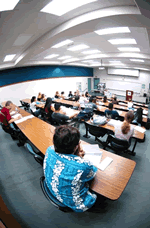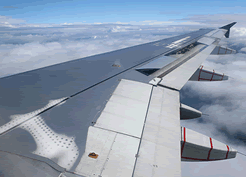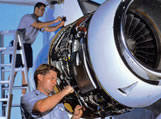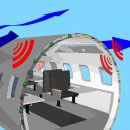Products & Services Help & Cure Top Ten Tips Advice for Fear of Flying The best advice for fear of flying is contained in the information below. Have a good read and if you have overcome your fears and have your own advice for fear of flying why not drop us a line and tell us all about it! | Tip 1 - Understand Your Mind No-one is born afraid to fly!
Fear of flying is a learned fear. A short psychology lesson...  Some advice for fear of flying would be to first understand how your brain works. In broad terms the brain is divided into 3 distinct areas. Some advice for fear of flying would be to first understand how your brain works. In broad terms the brain is divided into 3 distinct areas.
The reptilian brain is our earliest brain it operates quietly in the background always assessing situations and people. The reptilian brain looks at everything in a very basic way –
Can I eat this?
Will this eat me?
Can I reproduce with this? We have no control over the reactions of our reptilian brain, but it has a lot of control over us. It is the reptilian brain that makes us jump back from the path of an oncoming 10 ton truck – we don’t have to think about how we feel about the truck and we don’t have to stand and assess the closing speed, we just jump. 
It is the reptilian brain that stops us walking down dark alleyways at night. The reptilian brain is able to trigger automatic responses within the body – particularly the fear based fight or flight response – without any conscious input or thought. The next area is the limbic brain – the seat of the emotions – and the third and final area is the cognitive brain – the logic powerhouse. The imagination can be a wonderful friend or self-sabotaging enemy. The sub-conscious mind has no way of differentiating between reality and imagination; it just accepts all inputs from every sense and files them for future use. Our minds have no way of differentiating between what we watch on the news and what we watch during the film that follows the news.
| | Tip 2 - Understand Fear More advice for fear of flying would be to understand fear itself. Fear is the mechanism that keeps us safe. We do not want to do away with all fear – we want to retain the capability to react without thinking, when appropriate. If this looks scary... 
... It's because you don't feel in control. You probably don't know how your car engine works (maybe you do), but being in control of the pedals, the gears and the steering helps your mind ALOT! For further advice for fear of flying take a closer look at what fear is from our Fear Fact File and why it develops into an anxiety disorder.
| Tip 3 - Understand Re-programing Advice for fear of flying, at a cognitive level, we can rationalize; we can look at statistics; we can read books; we can talk to pilots and we know that flying is safe. However, communication between the rational brain and the reptilian part of the brain, (that keeps us safe), is not good and it doesn’t matter what our logical mind knows, if our self-protection mechanism believes us to be in danger. When fear is experienced, it is the reptilian brain that is triggered. Your cognitive brain can read as many safety statistics as you like – they will not affect the reptilian brain. It only knows how to keep you safe and, for whatever reason, it has determined that flying is not safe! So good advice for fear of flying would be to re-program your mind and re-program the reptilian brain. It is important to get the message through to this part of the brain that flying is safe. Recommended Program Fear of Flying Help has teamed up with a company called "Change Thats Rights Now" (CTRN) and along with the practical, informative DVD, we can now offer an outstanding home study program to completely eliminate The Fear of Flying FOREVER! | Tip 4 - Understand Hypnosis Further advice for fear of flying would be some kind of guided relaxation and imagery or even hypnosis is a good place to start.  In a state of relaxation it is possible to by-pass the cognitive and limbic brain and begin to communicate directly with the reptilian brain. Over time, the message it holds becomes changed and the fear of flying is replaced with a more positive reaction. For more advice for fear of flying and to learn about some great hypnosis programs, click here... | | Tip 5 - Understand Your Health Flying Health Risks More good advice for fear of flying is to understand the health risks at the root of the fear of flying, experienced by many. As with all things in life, knowledge is the great vanquisher of fear and by learning more about the reality of the health risks you encounter when flying, you help to diminish your fear.
The popular press is full of stories, mostly overstated, about certain health risks. These are just a few of the health concerns expressed by aviophobics: Click the links above to learn more about
any of the concerns you may have.
| | Tip 6 - Understand the Aircraft Aircraft Maintenance and Serviceability 
Understanding what you are flying in and how it is in the air, is more good advice for fear of flying. It's true that unless an airplane is maintained, it could pose a danger to the safety of its passengers and to everyone and everything else on board. There have been airplane crashes that have been reported that were caused by poor aircraft maintenance. This is a sad thing because of passenger safety and the crew should come before the aircraft takes off. Click here to read more... | Tip 7 - Understand Flight Noises 
Also more great advice for fear of flying is to understand the noises you hear during flight. The noise from the airplane can come from many sources. They could come from the vibrations and the whirring sounds during the retraction of the landing gears, the slamming sounds from the loose articles in the galley caused by the movement of the modules during take off or the reduction of power after airborne to comply with the noise abatement procedures in certain airports. The air-conditioning noise may change to cater for the cooling or heating needs. The Tick-tick-tick sound you may hear five minutes before landing comes from the operation of the landing. All these noises are normal and are nothing to worry about. Any abnormal noise would be picked up by the Flight Attendants and they would in turn notify the Captain. If you sit near to the engines, the noise level is usually higher than elsewhere. Fore more in-depth information and extra
piece-of-mind, click here, where we explain the
noises you hear during airplane flight.
| Tip 8 - Understand Statistics Statistics play a very important part of piece -of-mind and advice for fear of flying. Statistically passengers are safer in an aircraft than they are in a car, but that does not prevent those who are frightened of flying from experiencing intense anxiety, nervousness and even panic attacks that cause palpitations, dizziness, nausea, hyperventilation and, in extreme cases, loss of consciousness, just at the thought of taking a flight. Take at look at these statistics... For some, it may help a little! | Odds of being on an airline flight which results in at least one fatality | Odds of being killed on a single airline flight | Top 25 airlines with the best records
1 in 4.25 million | Top 25 airlines with the best records
1 in 6.3 million | Bottom 25 with the worst records
1 in 386,000 | Bottom 25 with the worst records
1 in 543,000 | Click here for more information about airline safety...
| Tip 10 - Get Extra Help Secrets Revealed More advice for fear of flying would be to get all the help you can. If you knew how a plane worked would you feel in control? - Yes! Watch our DVD and you will probably know and understand more than the person sitting next to you on any plane! This DVD will show you everything! 
Click here to find out more... | |

